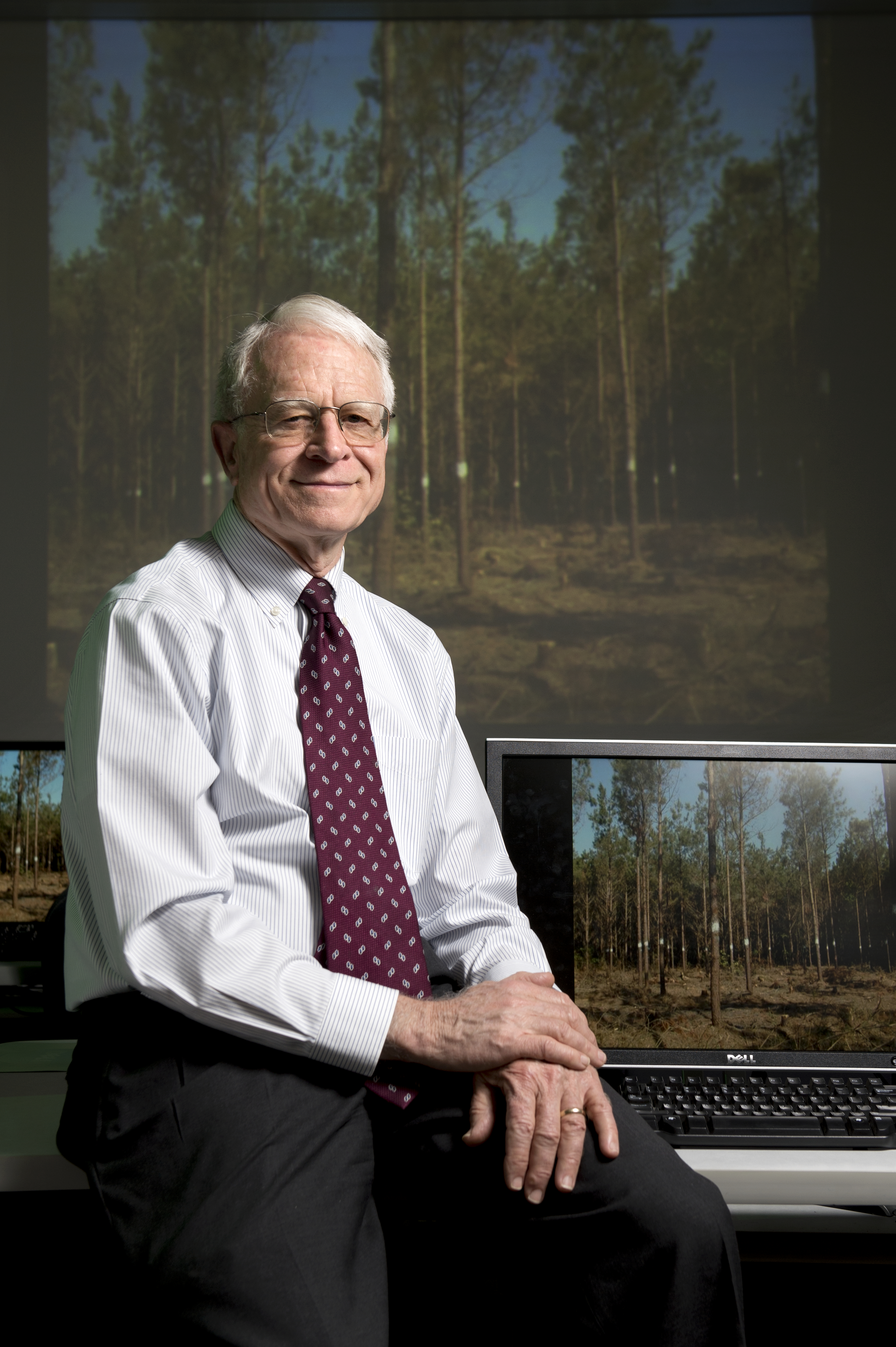Harold E. Burkhart named Forest Champion of the Year

Harold E. Burkhart of Blacksburg, Va., University Distinguished Professor and the Thomas M. Brooks Professor of Forestry in the College of Natural Resources and Environment, was named Forest Champion of the Year by the Forest Landowners Association.
The honor is bestowed upon individuals who have made a significant contribution to the private forest landowner community through research, legislative, or regulatory efforts at the local or national level.
“Dr. Burkhart’s commitment to the continued advancement of private forest landowners through his service to the Forest Landowner Association is unquestionable, and we are sincerely thankful for his many valuable contributions over the years,” said Scott Jones, the association’s chief executive officer.
Burkhart is considered by many forest scientists to be the father of forest biometrics, which explores the theory and applications of quantitative models of forest stands. His principal path-breaking achievement is the development of a comprehensive, integrated set of forest yield forecasting models for stands subjected to a wide variety of management treatments.
His contributions to the advancement of forest growth are unprecedented, and he has led the way in developing new methodology for tree and stand modeling and in elucidating the complex mathematical relationships between models of differing levels.
Burkhart has been a faculty member in the Department of Forest Resources and Environmental Conservation at Virginia Tech since 1969 and served as head of the department from 1995 to 2008. One of Burkhart’s latest achievements is being named Virginia’s Outstanding Scientist of 2013.
“It is a great honor to be recognized by the Forest Landowner Association, which promotes sustainable forest management on private land throughout the United States,” Burkhart remarked.
Burkhart holds a bachelor’s degree in forestry from Oklahoma State University and a master’s and doctorate degree in forest biometrics from the University of Georgia. He is a Fellow in the Society of American Foresters and the American Association for the Advancement of Science, and holds professional memberships in numerous other organizations.
Since 1941, the Forest Landowner Association has served private landowners by providing them with education, information, and national grassroots advocacy that enables them to sustain their forestlands ecologically, financially, and across generations. Association members own and operate more than 40 million acres of forestland in 48 states. The organization provides advice, support, and information to policymakers, educating them on how proposed legislation could affect private forest management, stewardship, and sustainability.
Written by Samantha Huff of Christiansburg, Va., a senior majoring in English in the College of Liberal Arts and Human Sciences.




